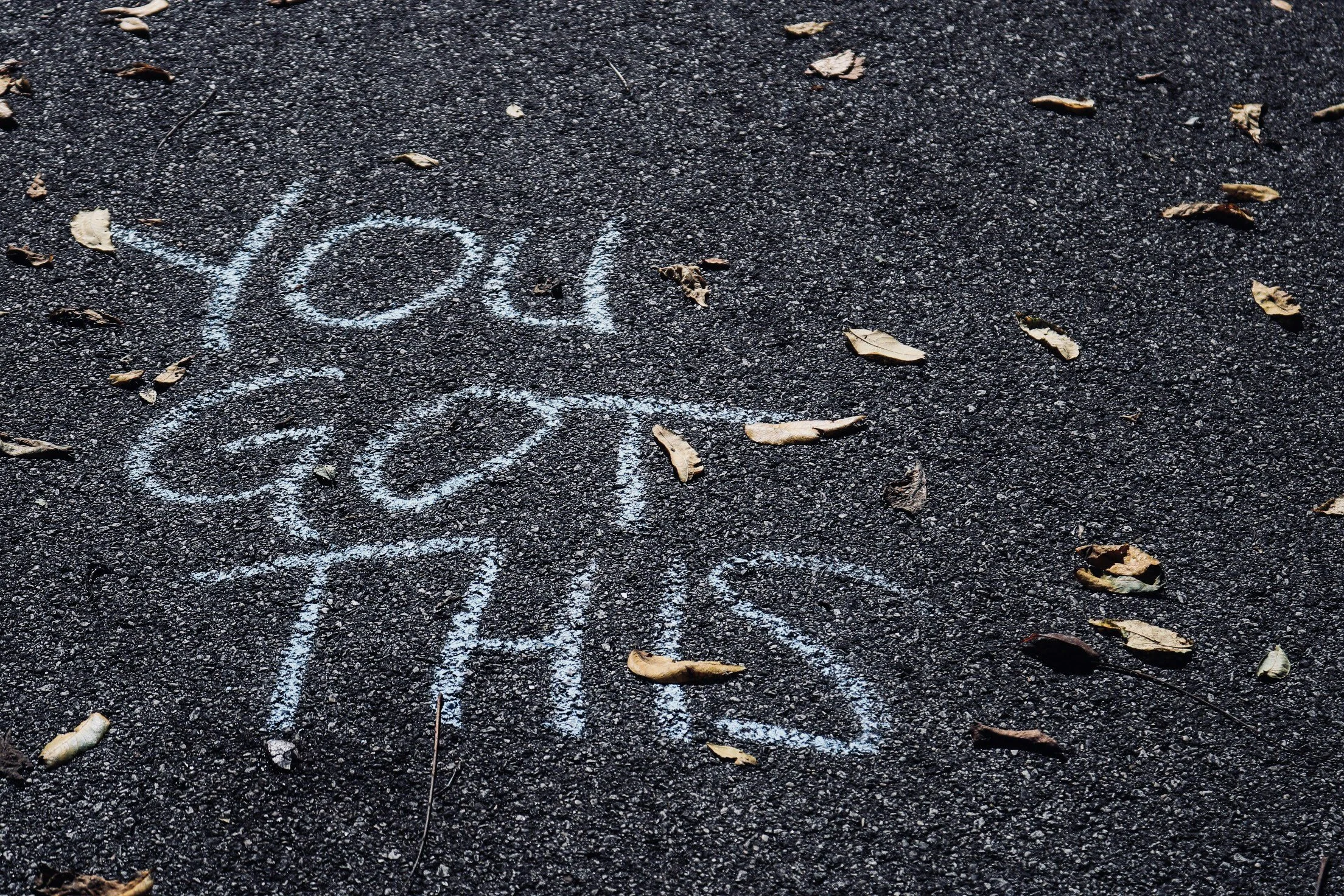It's Never Good Enough: Letting Go of Perfectionism
When you look at your OBS {link OBS guide} stats and see frames missed due to rendering lag, skipped frames due to encoding lag, or dropped frames during a stream, does it cause you great anxiety and stress? Do you end your stream early because clearly there's a problem that needs to be fixed immediately? It could be 0.1% of frames dropped due to rendering lag, but why were they dropped? What caused it? How do you fix it? This drives you down a rabbit hole that could last hours, days, or weeks—potentially derailing all the progress you've made streaming recently.
This paragraph was not meant to scare you—rather to give you insight into how I began my streaming journey. Since I began in 2015, I have spent easily triple the number of hours working on my stream than I have spent live on stream. When you consider the research, the testing, more research and more testing, troubleshooting, problem-solving, it could be even more than three times. I recently added a third desk to my home office to fix a lighting issue I've had for months: one little corner of my green screen was not keying correctly in OBS because my lights cast too heavy a shadow. That extra desk gave me a better mounting position for my lights, mostly eliminating the dark shadow. Building that desk took an entire day and cancelled one day's stream.
It's this perfectionism that has driven me to build my perfect setup and then iterate on it many times over the years, sinking more money and more hours chasing the perfect setup. I think I'm there now, at least close enough that I've stopped obsessing. It doesn't stop me from trying new software, like Meld Studio, when it comes out, but I have a baseline functional stream that does everything I want it to do, and anything else I experiment with is just a chance to learn more.
What is Perfectionism?
Perfectionism is a curse that can sometimes be a blessing. It is the thing that drives me to always be better than I was, but it is also the thing that kills my drive by setting insurmountable goals. Perfectionism is my obsessive need to improve things, even when they are objectively perfect. Nobody can see that dark spot on my camera because I cropped it out. But I know it's there, and I need to fix it. Rachelle Goldenberg defines perfectionism as, "Perfectionism means setting really high standards—sometimes impossibly high—for yourself and sometimes for others too. When things don’t go exactly right, perfectionists tend to be incredibly hard on themselves" {source note}.
The idea that things can go exactly right is difficult, because they can't. Nothing is ever perfect, especially not forever. And because things change, I need to change things in order to stay ahead of the measure of perfection. It doesn't matter that I'm the only one measuring the perfection in my stream—because if I see the imperfections, I deduce that everyone must be able to.
When the PS5 and Xbox Series X came out, they supported 4K resolution at 120Hz on compatible displays. This required HDMI 2.1, a fairly new interface at that time. When I decided to upgrade to a 4K 120Hz monitor, my capture card wasn't enough. I replaced it with one of the new HDMI 2.1 cards, but the new card was slightly taller than the old one, causing it to bend uncomfortably under my graphics card. It worked, but the imperfection gnawed at me. To 'fix' it, I installed an extension cable to move the card. This solved the bend but created a new problem: the cable was loose, and eventually, the connection failed entirely.
I bought yet another premium capture card to solve the spacing issue, but that introduced a new problem: audio crackling due to USB conflicts. I had spent hundreds of dollars to trade a visual imperfection for an audio one.
I now had two expensive capture cards that didn't work perfectly, so what was my solution? Buy a new computer, of course. I moved to a Mac Studio, though admittedly not just for streaming—this was also so I could use Final Cut Pro on the same device that I was streaming and recording on. Copying files back and forth between my Windows PC and Mac laptop was frustrating. Amidst all this, my teenage son wanted to get into PC gaming, so while there were factors in streaming that led to this, ultimately it was better for everyone. Of course, now I have an AVerMedia capture card sitting uselessly in a drawer in my office, but at least my stream works.
How does Perfectionism impact your Stream?
Both Twitch and YouTube offer guidance on the settings you should use in OBS or other streaming software. {link twitch/youtube encoding pages} But those guidelines don't tell you everything. Which encoder should you use? What impact will streaming via WiFi have over Ethernet? Should you multistream or pick one platform? Twitch Enhanced Broadcasting or not? There are many more considerations to make when streaming, and any one of them, set incorrectly, can easily make your stream less perfect.
Setting too high a bitrate can lead to skipped frames. But streaming to too many sources can also lead to skipped frames. If your hard drive write speeds aren't fast enough, OBS will start dropping frames as the buffer fills up and begins to overflow. This problem took me an embarrassing amount of time to fix until I realized that my USB hard drive wasn't fast enough to record directly to. My son's laptop couldn't render frames fast enough when he used OBS, and while I hadn't encountered that on my own PC, it was an interesting bit of learning about how all the sources in your scene can contribute to enough slowdown that you drop frames if your PC isn't powerful enough.
If you go on Twitch and look up any category you like, you'll see a sea of streamers with cameras, overlays, VTuber models, and they all look great. They may have dozens, hundreds, or thousands of viewers, and nobody is complaining about the slight green outline from a green screen that's reflecting too much light or the animated overlay that skips a frame of animations when it loops. People might mention if the camera frame is off centre, but a lot of problems that you will see in your own stream will likely not be noticed or commented on by viewers. They'll hopefully mention when you forget to unmute your microphone or accidentally turn off your camera. Your viewers aren't there to critique you or your setup—they're there to enjoy hanging out with you.
Because of that, I like to focus my perfectionism on areas that actually matter to viewers. Is my voice clear? Can I be heard over the sound of gunfire in a game, or is that going to drown me out? When I'm streaming blog writing, is the music and ambient sound I keep in the background detracting from the experience or enhancing it? I tend to work to the sound of rain and light thunder, and the peaceful clacking of a mechanical keyboard—especially now that I use a keyboard that makes very little sound.
Redefine Perfection
If you searched online for the perfect streaming setup, you would find no shortage of differing opinions and setup guides, many of which would contradict one another, leaving the person doing the searching potentially confused about how to do things "right."
The easiest answer is that there is no perfect setup, but by saying that, we set ourselves up for a challenge. If perfection doesn't exist, how do we convince ourselves to let go of its pursuit? Well, we can start by trying to redefine what perfection means in our own streams.
Today, for me, the first measure of perfection is adherence to my schedule: four days of gaming, three days of creative work. During the first weeks after the release of ARC Raiders, three of my four streams were ended early due to the game's servers going down. If I've decided to play a game on my stream, I don't really want to flex into something else, so in these three instances, my stream ended early. This is a disappointing outcome that I still need to work on.
If I reflect on that week of streaming, I see these shortened streams due to circumstances out of my control, but it still feels like it's my fault. I should be more flexible and move to something else. In my current pursuit for perfection, I hope to learn to be more flexible in my streams, being able to flex into backup options when things don't go my way.
I mentioned my green screen issues above. Over the years, I've tried a few options to make things better. I got better lights, I used different software, different materials (including a tablecloth from the dollar store that worked surprisingly well for a while). I've moved the lights, added additional desks (as mentioned above), but I still struggle to this day. If I wear a shirt that is slightly more blue, it messes with the white balance of my camera and makes my face too yellow. I haven't learned enough about my camera to know how to set things manually. To this day, I still adjust my green screen every week in the hopes that I can one day perfect it. I doubt I ever will.
It's easy to fall back into old habits, and this trap extends beyond hardware and into software. I realized the danger of switching streaming applications without enough testing. Chasing the perfect UI meant jumping between OBS, StreamLabs, and Meld Studio, resulting in only frustrating software conflicts, errors, and endless headaches.
The point of these stories is not to discourage you from experimenting and learning, but to help us redefine perfection. I view those experiments not as personal failures, but as necessary lessons. If, in pursuit of perfection, we can continue to learn, I think we can get there. Now, I look at small, impactful changes that are easy to undo. New alerts. New productivity tools. Different music. Ambient sound. If I don't like the rain sounds in the background, I can turn them off and keep going. When I need to make a major change, I take some time on my non-streaming days to test, test, test. It's still not perfect, because you can't easily test online connectivity or how things work live. I tried to create alerts for merch sales. I'm not selling any merch, but I figured I'd get ahead of the game and be ready. I still haven't figured them out properly.
In pursuit of perfection this week, I set up subscriber badges. Now, anyone subscribed to my Twitch for 2, 3, 6, 9, and 12 months gets fancy new badges.
Other opportunities I have to improve things for the stream would be channel point redemptions, better emotes, and bits badges. But these things will come eventually—for now, I'm happy with what I do have, and I think although it could be better, I'm not unhappy with what my channel is doing.
Be Confident
Early in my streaming years, I struggled a lot with the lack of growth. I thought it must be that I didn't have a good enough camera, or microphone, or capture card, or PC hardware, and I kept buying new, more powerful tech to compensate. What I wasn't doing at that time was producing content for other platforms. I wasn't active on social media. I didn't use Discord.
Now, after all my learning, I still don't use Discord and I don't have active social media accounts—outside of YouTube, TikTok, and Twitch. Standard streaming advice is that you need as much and as many social media connections as possible, but I realized that for my mental health, attempting to be perfect on every platform was impossible. Choosing to limit my scope gave me the confidence to master the platforms I actually enjoy.
When I stream games on Twitch, I record and edit highlights which go on TikTok and YouTube. I'm not currently actively producing long-form content for YouTube because I need to balance real life / family with content creation, and that means prioritizing the areas that I find the most rewarding and most impactful. I identify those areas as the places where I have the most fun, or where I feel I can provide a benefit to others. Or maybe where I hope I can provide a benefit to others. Either way, I choose to work on the things that make me happy, rather than chasing more numbers.
When I say be confident, I mean find perfection in what you do now, or what you're building towards, and lean into what you do, rather than what you have. Did a DSLR camera really help my stream in a measurable way? Did an XLR microphone upgrade my audio by the same ratio as its cost? I have more than one capture card sitting in a drawer behind me because of impulsive decisions that, had I known then what I know now, I would have been able to avoid.
Tobin Maclean said of perfectionism, "I feel like it is pointless for me to spend time producing art which isn’t of exceptional quality, and it leads to so many of my pieces and ideas going unfinished or never even being started." {cite} When I was looking at my own stream and seeing its imperfections, it discouraged me from wanting to stream at all if I didn't have the best possible setup.
You may never be able to cleanse yourself of the feeling that things aren't perfect. But, at least you can try to be confident that there is perfection in your work; you just need to find it.
Have Fun Again
Once you have your perfect setup, will you have more fun? Will you be less frustrated by the small things going wrong that you can't control? I've been through it, and at least can tell you that it'll feel more fun, but it won't actually be more fun. When I set up my new microphone, I did two recordings—one with the old and one with the new. I took those recordings and listened to them with headphones, with expensive speakers, and with cheap speakers. The XLR microphone sounded significantly better in all three modes. Especially headphones, where my voice went from somewhat flat and boring, to sounding like I was speaking directly into my own ear—still flat, less boring. Mildly off-putting at first—who wants to whisper into their own ear?—I realized this was the sound I had always wanted. But my stream peaked in 2021, three microphones ago. I like the XLR microphone, but it hasn't had the impact on my stream that it had on me. Similarly, I've had more trouble with a DSLR camera, from capture cards that froze to green screen trouble to dummy batteries that just stop working. Problems I wouldn't have with a USB webcam, especially when my face takes up only 25% of the screen on a creative stream, and maybe 15% on a gaming stream. I wouldn't go so far as to say I regret these purchases—just that maybe I didn't need to make them when I did.
If you can be satisfied with your setup, I think having fun will come naturally. And if you can convince yourself that you don't need a $1300 camera when you have three viewers, you'll realize that the perfection you were chasing was never in the hardware—it was in the fun you forgot you were supposed to be having.
References
Maclean, Tobin, “Perfectionism.” Jan 25, 2024. Altogether Autism. Accessed Nov 19, 2025.
Goldenberg, Rachelle, “Perfectionism and Autism: Finding Balance Without Losing Your Edge.” Nov 8, 2025. Gliszen Therapeutic. Accessed Nov 19, 2025.




